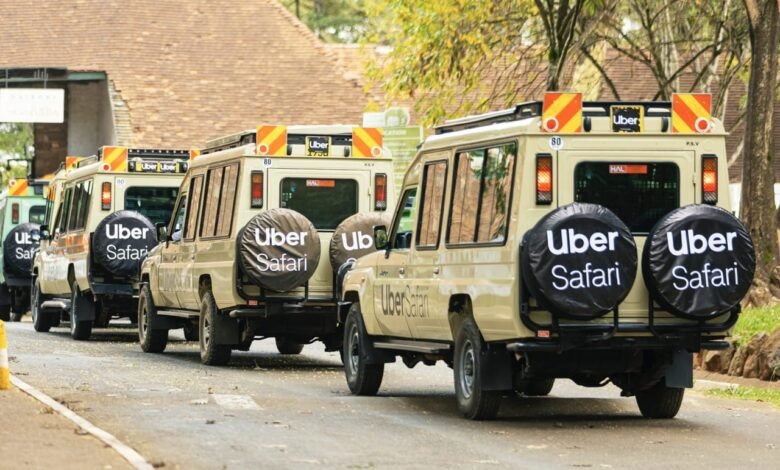
Uber announced today a significant expansion of its services in Kenya with the launch of Uber Safari, a new product that allows users to book a guided safari tour directly through the app. The service, which goes live as the company marks its tenth anniversary in the country, offers on-demand trips through Nairobi National Park, the only national park in the world located within a capital city.
The move sees Uber push its platform beyond urban transport and into the heart of Kenya’s multi-billion dollar tourism industry. Users can now use the Uber app to book a safari-ready Land Cruiser, complete with a licensed guide, for a three-hour wildlife experience.
How It Works
The service is integrated into the existing Uber app under the “Uber Safari” category. It functions through Uber Reserve, requiring users to pre-book their trip. From there, the experience is designed to be a packaged tour. A Land Cruiser operated by a licensed local tour company will pick up the riders for their scheduled tour.
There are two main options available: a Day Safari and a Night Safari. Each booked trip includes the vehicle, a licensed guide, and the three-hour tour. Uber says the service is a partnership with the Ministry of Tourism, Kenya Wildlife Services, and other local authorities to ensure regulatory compliance and safety.
Imran Manji, Uber’s General Manager for East Africa, positioned the launch as a way to make wildlife experiences more accessible. “This product is designed to make safaris more accessible and convenient for both local residents and international visitors,” Manji said in a statement.
A Platform Play for Tourism
While the branding is all Uber, the company is not operating its own fleet of safari vehicles. Instead, Uber Safari is a platform that connects its user base with existing local tour operators. The company states that Land Cruiser fleets can sign up to gain access to Uber’s “rider base and seamless booking technology.”
This model follows Uber’s established playbook of entering existing industries and providing a technology layer to generate new demand. The company is framing this as a way to support local businesses and create new earning opportunities for tour operators.
According to figures released by the company, Uber contributed KSh 14.1 billion to Kenya’s economy in 2023, with KSh 2.7 billion of that coming from value generated for the tourism industry. Tourism remains a cornerstone of the Kenyan economy, accounting for 10.4 percent of GDP.
Anabel Díaz, Uber’s Vice President for EMEA, called Uber Safari “a symbol of how technology and tradition can come together to deliver meaningful impact.” The launch underscores the strategic importance of the Kenyan market for Uber as it continues to find new, locally relevant applications for its platform.






